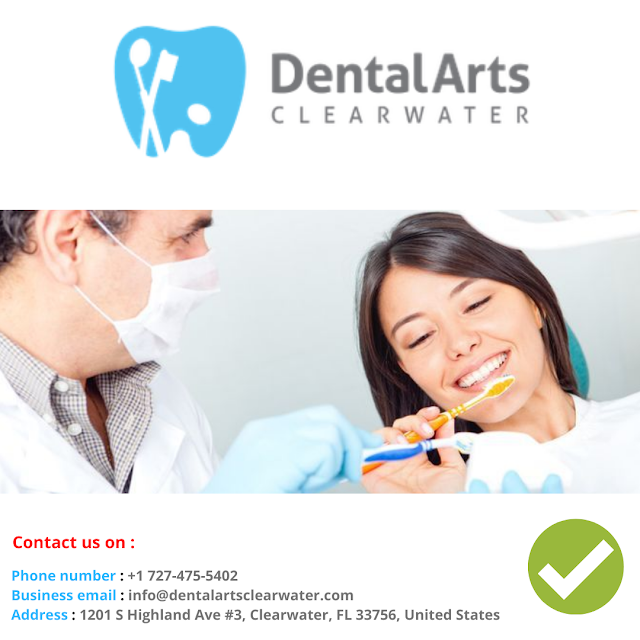Why Is Oral Cancer Screening Important?
 |
You schedule an appointment with your dentist for a dental exam and cleaning and are startled when informed the dentist will perform a Screening for Oral Cancer during your visit. The information shouldn't scare you but, on the contrary, should make you happy that the dentist isn't merely looking at your teeth and gums but also considering your oral and overall health.
You may have heard about Oral Cancer Screening near me performed by dentists on patients scheduling appointments as you did. You may think you are not susceptible to oral cancer, and why must you undergo the screenings.
You are justified in your thinking but must understand the screening doesn't cost you more money or requires additional time at the dentist's office. The screening is an essential preventive measure to detect signs of cancer or precancerous lesions in your mouth.
All dentists perform an oral cancer screening during routine dental visits to identify mouth cancer early when the chances of a successful outcome from any treatments are higher. When performing the screening, the dentist examines your mouth, looking for signs of abnormal cells or growths to identify whether it is oral cancer.
Why Is Oral Cancer Screening Performed?
Cancerous lesions in the mouth are comfortable to remove and most likely to cure when detected early. Your dentist aims to identify mouth cancer or precancerous lesions that may lead to this condition in the earliest stages when any treatment delivers successful outcomes.
You may be surprised that your dentist insists on performing oral cancer screening despite no evidence suggesting that the screening can save lives. Debates are raging between different groups, with some recommending the screening and others opposing it claiming sufficient evidence isn't available to perform these tests.
Suppose you are at a higher risk of oral cancer; you can benefit from the screening, although studies haven't proven it. Some factors that increase your chances of oral cancer include:
o Use of tobacco in any form, including snuff, pipes, cigars, cigarettes, and chewing tobacco.
o Consuming alcohol excessively.
o Having a history of significant sun exposure increases the risks of lip cancer.
o Oral cancer diagnosis earlier.
Mouth and throat cancers are increasing significantly among people over the last several years without sufficient reasons. The human papillomavirus (HPV) is associated with an increasing number of cancers detected.
If you are concerned about your risks of oral cancer, you can seek advice from Dr. Annie Auletta, the dentist in Clearwater, Florida, to reduce your risks by inquiring which screening tests are appropriate for your needs.
What Are the Risks of Oral Cancer Screening?
Some limitations are associated with exams for oral cancer screening. They are:
o Many people have sores in the amounts, most of them being noncancerous. Oral cancer screening cannot determine the difference between cancerous and noncancerous sores.
o If your dentist detects an abnormal sore, they recommend further testing to determine its reasons. The optimal way to decide whether or not you have oral cancer is by removing some abnormal cells in a biopsy and testing them.
o It is challenging to detect areas of abnormal cells in the mouth merely by looking at it. The possibilities of small cancers or precancerous lesions going undetected remain high.
o Oral cancer screening cannot save lives because no evidence is available stating routine oral exams looking for oral cancer signs reduces fatalities caused by this disease.
Perhaps the only benefit of oral cancer screening is the help it offers to find cancers early when they are comfortably treatable.
Preparing for Oral Cancer Screening
Scheduling an appointment with your dentist in Dental Arts Clearwater is the only preparation you need to undergo oral cancer screening. The procedure is performed during the routine dental exam.
When performing oral cancer screening, the dentist looks at the insides of your mouth, checking for red or white patches of or mouth sores. Your dentist will feel the tissues in your mouth, checking for lumps and other abnormalities. Your throat and neck are also observed for masses.
Dentists recommend additional tests besides the oral exam when screening for oral cancer. No evidence is available to prove the tests suggested are beneficial over the oral exam or not. Your dentist may ask you to rinse your mouth with a blue dye before the exam. The blue dye highlights abnormal cells in your mouth to make them appear blue.
Some dentists use and oral cancer screening light in your mouth during the exam. This light darkens healthy tissue while making abnormal tissues appear whiter.
The Results of Oral Cancer Screening
Suppose your dentist detects any signs of mouth cancer or precancerous lesions. You are recommended a follow-up visit in a few weeks to determine whether the abnormal area is still present in your mouth and check whether it has expanded or changed. Dentists perform a biopsy for laboratory testing to determine whether cancer cells are present in your mouth. If confirmed positively, you are referred to an oncologist, a specialist in oral cancer diagnosis and treatment.
As can be seen, there is nothing to fear about oral cancer screening. It is just as essential to ensure you are entirely healthy without cancerous or precancerous lesions in your mouth and is a preventive measure you must be happy to undergo.

Comments
Post a Comment